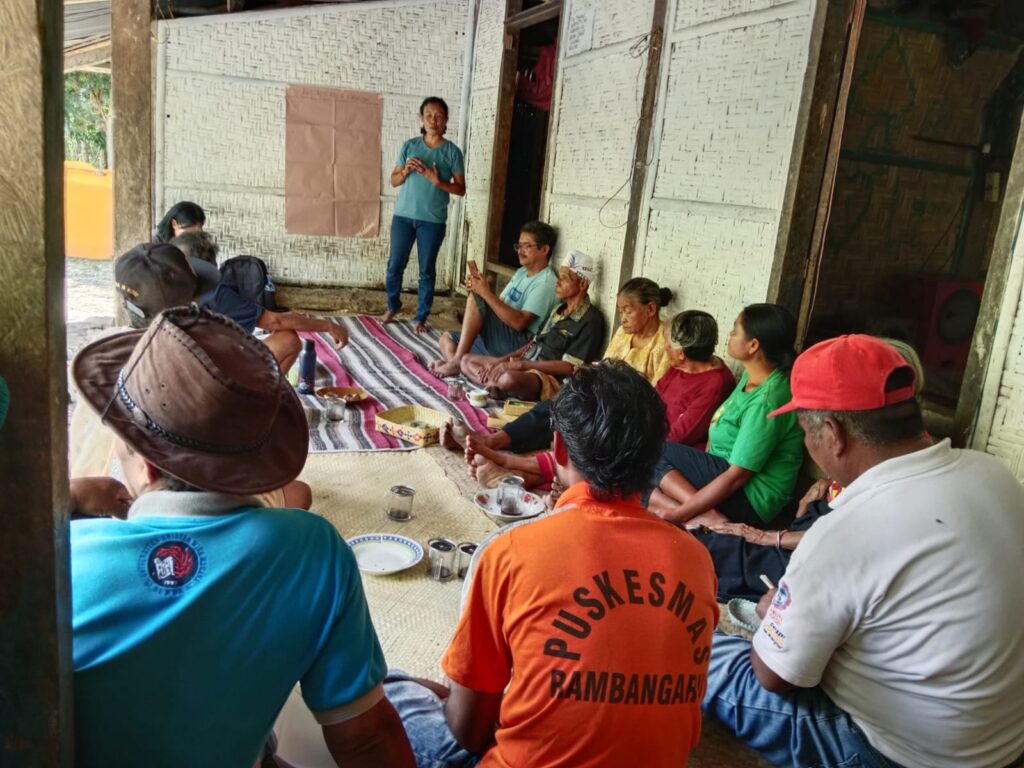In 2023, the Bumi Lestari Institute (LBL) through KEMITRAAN in the INKLUSI program launched an important initiative to empower indigenous communities. Especially women and disabled groups. This event was held in Kalamba village, Haharu District, East Sumba Regency, East Nusa Tenggara Province. The Gender, Disability and Social Inclusion (GEDSI) approach used in this program aims to ensure that no Indonesian citizen is left behind in the development process.
The formation of a disability group in Kalamba Village in 2023 was triggered by awareness of the need for serious attention to their survival. Society often views people with disabilities as helpless individuals who are very dependent on the help of others. This paradigm is not entirely correct and needs to be changed. Thus, this disability group was formed to prove that people with disabilities are also able to help themselves. Don't always depend on help from other parties.
In the disability business plan preparation activity held by LBL, participants consisted of members of disability groups, representatives from the village government, and indigenous communities. The main objective of this activity is to formulate a business plan that is a priority for people with disabilities. This activity aims to provide a clear reference so that people with disabilities can develop their skills and businesses independently. So that you don't continue to depend on government assistance or other parties.
The long-term goal of preparing this business plan is to build understanding that people with disabilities are able to meet their own needs. And have independence in everyday life.
LBL uses comprehensive methods to help prepare business plans. This method includes workshops, group discussions, and individual interviews to understand the needs and potential of each member of the disability group. Each business plan is prepared based on the skills and business potential of people with disabilities. The types of business plans identified are; weaving gedek houses, weaving betel nut containers, farming, animal husbandry, fish ponds, kiosk businesses, and rope spinning.
During the activity, there were many testimonials showing gratitude and hope from the participants. "Even though it is difficult to involve people with disabilities in development planning due to the geographical conditions of the village, we still encourage them to continue to participate. "Disabled people must be considered in the empowerment process," said Jumi Joz, Kalamba Village facilitator.
The Kalamba Village Government, represented by Lodu Hambamay, also expressed its appreciation to LBL. “We are very grateful to LBL for helping facilitate the preparation of a disability business plan. "This makes us as a village government better understand the priorities and business needs for people with disabilities in the future."
Members of disability groups also feel helped by this initiative. They are very grateful to the Bumi Lestari Institute for helping facilitate the community in preparing business plans. This gives them hope to have their own business and not depend on others.
Implementation of the business plan that has been prepared will involve various concrete steps supported by LBL and the village government. Some of the planned steps include skills training, providing business capital, and technical assistance to ensure the success of each business.
LBL will collaborate with the Social Service, Agriculture Service and Fisheries Service to provide assistance needed by disabled groups. This assistance includes the provision of plant seeds, livestock, tools and materials for weaving, as well as facilities for fish ponds and kiosk businesses. Apart from that, the village government also took the initiative to provide assistance in the form of basic necessities and the Family Hope Program (PKH) to members of disability groups who are unable to carry out activities.
With this support, it is hoped that people with disabilities in Kalamba Village can develop their skills and businesses independently. So as to improve their quality of life and independence in the long term.


